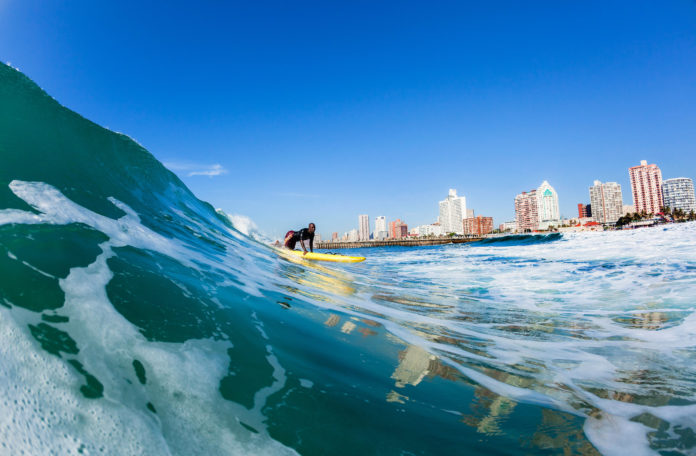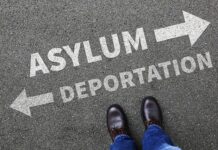Considering the recent updates to the UK government’s safety guidance for South Africa, you might be wondering if it’s wise to visit at all. The advice can make for nerve-racking reading, with mentions of carjackings, armed robberies and other violent crime.
But visitors to South Africa are generally sheltered from the worst of it and the vast majority don’t have any bad experiences. Many South Africans rely on tourism and there’s an effort to ensure visitors continue to travel, especially after the pandemic. Here’s what you need to know.
Main photo: at a MyCiTi bus stop in Cape Town city centre (Alamy)
*This article contains affiliate links.
All products and brands mentioned in this article are selected by our writers and editors based on first-hand experience or customer feedback. We feature properties from a specially selected list of trusted operators who are of a standard that we believe our readers expect. This article contains links which are ads and if you click on a link and buy a product we will earn revenue. These links are signposted with an asterisk. The revenue generated will help us to support the content of this website and to continue to invest in our award-winning journalism.
Is South Africa safe for tourists?
Yes, South Africa is safe for tourists. The areas in which people typically stay — Cape Town’s city centre and inner suburbs, the Cape Winelands, the Garden Route and safari destinations — are among the safest in the country.
You should take the usual safety precautions. Don’t walk around at night — use Uber. Don’t flash your valuables. Be aware of your surroundings.
If you’re driving, aim to not leave anything in your car — break-ins are common, particularly in the parking areas for Cape Town’s hiking trails. When you lock the car, check that it’s actually locked as criminals often use remote jammers. On the go, keep your windows rolled up and doors locked — don’t open your window to speak to people at traffic lights — and stow bags and phones out of sight as much as possible so as not to invite a “smash and grab”. Be aware of other drivers, especially on highways — road safety isn’t great and people often drink and drive.
Public transport is a mixed lot. The MyCiTi buses in Cape Town are generally safe, as is the Gautrain in Johannesburg, which connects the city to the airport. Avoid inter-city trains and minicab taxis.
Johannesburg’s OR Tambo International Airport is notorious for luggage theft. Make sure you keep all your valuables in your hand luggage.

Popular beaches have lifeguards and sometimes shark spotters. Read and take heed of any warning signs.
It’s best to go hiking with a guide — you also get your own personal photographer that way. If you don’t go with a guide, make sure you join a group who know the mountains (check out Meetup or search Facebook or Instagram for community groups). Most permitted hiking trails in South Africa require you to be in a group of at least three for safety. In Cape Town, there are hotspots for muggings and being alone on the trails can make you quite vulnerable — not just in relation to crime, but also if you hurt yourself, get lost or become unwell (through dehydration or a snake bite, for example).

The weather can change very quickly, too. It’s always a good idea to use Safety Mountain, a WhatsApp-based tracking service where you share the details of your Table Mountain hike or run and a volunteer will follow up if you’re late to check out — I’ve received calls just 20 minutes after my ETA, so they are very much on the ball.
Make sure you Google and save the relevant emergency rescue numbers for whatever part of the country you’re in. 10111 for police, 10177 for an ambulance and 112 for emergency services from a mobile phone (free) should work all over South Africa.

Is South Africa safe for women?
The answer to this underlines the difference between tourists and people who live in South Africa. The country has horrifying rape and gender-based violence statistics. In a 2009 study, one in four men admitted to committing rape. A third of girls will experience sexual abuse in their lifetime. South Africa is one of the most dangerous countries for women and girls — most at risk are those who live in poor and underserved areas such as townships.
While it’s important to know this, most female visitors will be fine and many women travel solo around South Africa. To keep yourself as safe as possible, don’t travel after dark. Aim to stay in hotels and guesthouses with decent security. Join groups for hiking or city tours (you also learn a lot more with a guide). Let people at home know where you are and what your plans are.
Use Uber over Bolt — Uber has better security features (such as driver facial recognition ID checks).

Is South Africa safe for honeymooners?
South Africa is a great honeymoon destination. Couples typically combine Cape Town with a safari and perhaps a beach break, either in South Africa or a resort in Mauritius or Mozambique. These kinds of trips follow safe tourist routes and visitors are unlikely to face problems if following basic safety advice.
Is South Africa safe for LGBTQ+ travellers?
LGBTQ+ safety again reveals the contrasting experiences of those in disenfranchised communities and wealthy residents/tourists. Life can be extremely dangerous for LGBTQ+ people in townships. Yet in legal terms, South Africa is very liberal. People are protected from sexual orientation discrimination and it was one of the first countries in the world to legalise gay marriage — and same-sex couple visitors are very unlikely to encounter any problems. Cape Town is considered the most gay-friendly city in the country with a slew of LGBTQ+ bars and clubs, mostly around De Waterkant.

Where should I avoid in South Africa?
A good general rule is to ask people at your hotel or accommodation about a place you’re interested in visiting — they’ll have a much better idea of whether it’s safe at the current time and they’ll be able to recommend a guide to accompany you if needed.
Avoid protests and any areas experiencing unrest, for obvious reasons — again, ask locals about what’s happening at the time you’re travelling. Situations can change quickly.

Typically, it’s not wise to travel into townships as a tourist by yourself. But that doesn’t mean don’t go — find a guide through local businesses such as 18 Gangster Museum and Juma Art Tours in Khayelitsha, Cape Town, or Lebo’s in Soweto, Johannesburg.
Johannesburg is a really fun city to visit, with plenty to entertain tourists. But it does have a particularly high crime rate. There are areas to avoid, like everywhere, and it’s best to ask a local guide or hotel staff about specifics and not to go a-wandering. If visitors experience crime, it’s likely to be theft — so keep your belongings secure (don’t leave your bag hanging off the back of your chair, for example) and be aware of who is around you.

Try to figure out your route before you leave so you don’t need to check your phone in the street. In cars, keep an eye on your surroundings when stopping at red lights, especially in quiet areas or at night; ideally, avoid driving after dark. A lot of this is basic travel safety stuff and not to be seen as scary — I’ve visited Jozi both with people and solo a bunch of times without incident.
Outside the major cities, it’s generally much safer — but you should still be vigilant and take normal safety precautions.







